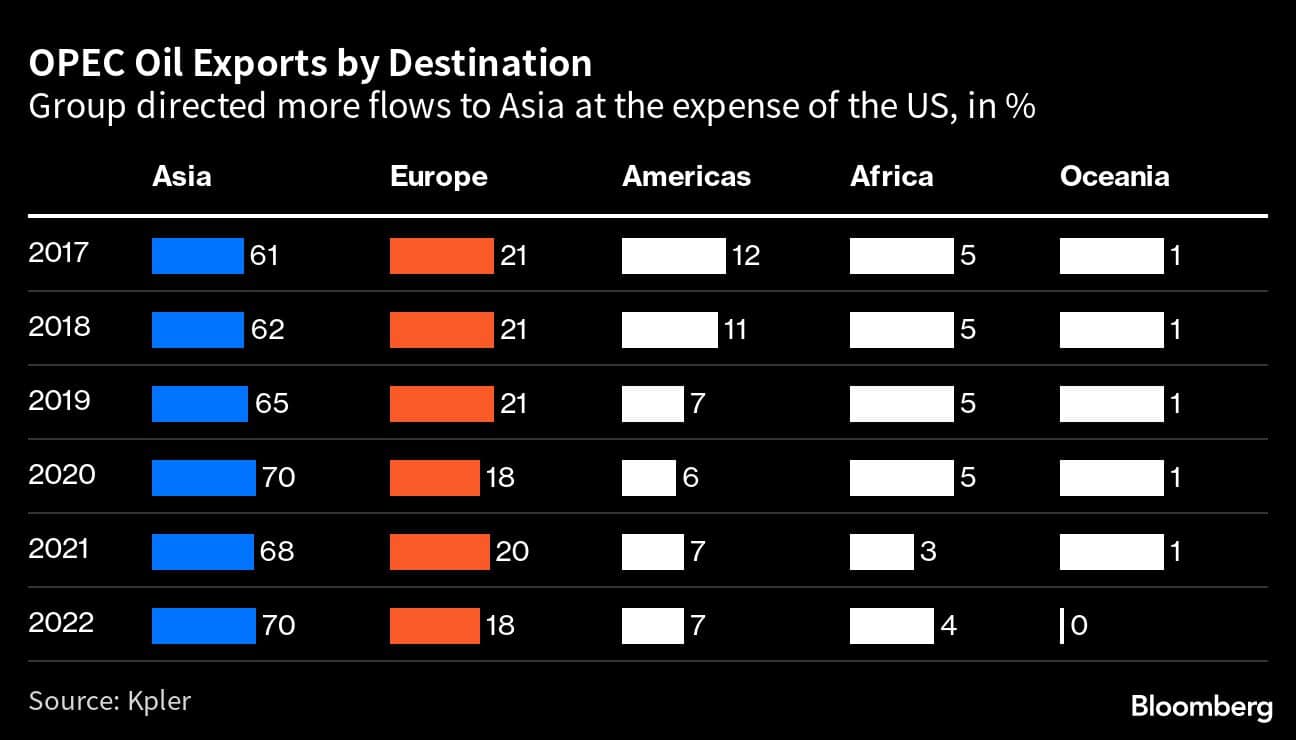



A surprise cut in oil production from OPEC+ is now setting the stage for other producers to vie for markets in Asia.
Since the Organization of Petroleum Exporting Countries started managing supplies more actively in 2017, member states have privileged flows to Asia at the expense of countries like the US. Last year, 70 percent of oil from the group went to Asian countries including China and India, up from 61 percent in 2017. Meanwhile, the share bound to the US shrank to 6 percent from 10 percent, data from market intelligence firm Kpler SAS show.
During that time, oil production has also increased in the US, and American exporters might look at the latest OPEC+ move as their opportunity to grab more market share in Asia.

US output climbed on the back of rising production from shale deposits. American refineries have ramped up their ability to process lighter crude grades that typically get pumped from places like the Permian and Eagle Ford. Currently, 63 percent of the oil processed by refiners in the US is produced domestically, up from 41 percent a decade ago.
Refiners in Asia will also be able to process those lighter oil grades, and American fuelmakers could find themselves in competition with buyers from Asia.
At the same time, while the US has reduced its reliance on OPEC+ oil, the country still imports close to 580,000 barrels daily from the group — primarily medium and heavy grade crudes. The latest production cut could also make it harder to source those barrels.
The expected cut to supplies from OPEC+ will likely start impacting deliveries arriving in the US in July, during the height of the summer driving season. American buyers have until then to start looking for alternatives.
Discover the latest Business News, Sensex, and Nifty updates. Obtain Personal Finance insights, tax queries, and expert opinions on Moneycontrol or download the Moneycontrol App to stay updated!
Find the best of Al News in one place, specially curated for you every weekend.
Stay on top of the latest tech trends and biggest startup news.